Black mothers in the US speak of challenges and resilience
America’s healthcare system leaves Black women feeling unseen and unheard in pregnancy and beyond
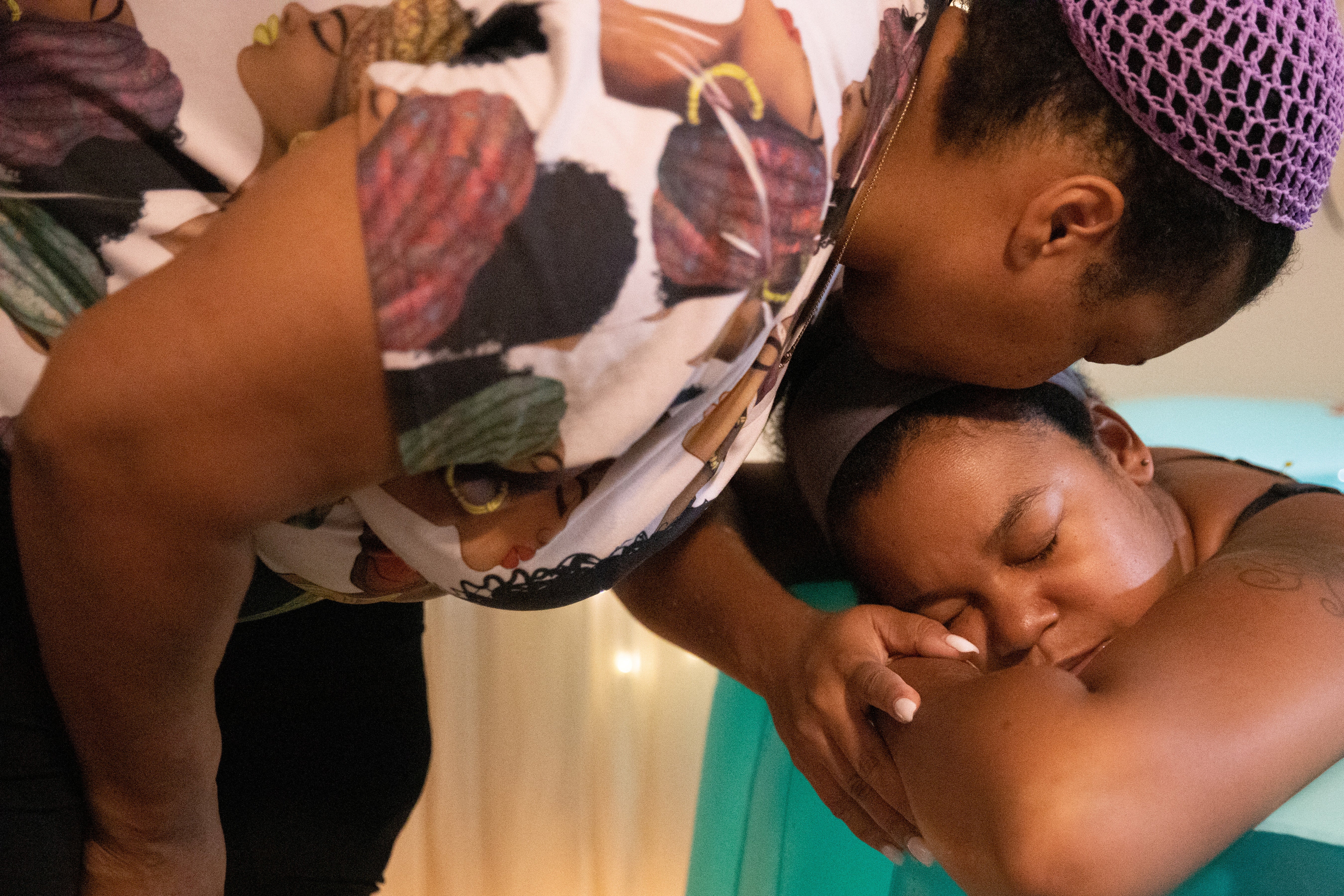
Ciara Clark, a Black doula, laboured for more than nine hours at home before making a last-minute switch to go to the hospital to give birth.
With her own Black doula and mother by her side, Clark had hoped to have her baby at home with no medical assistance at all. She wanted to have a “wild” pregnancy – one that is medically unassisted.
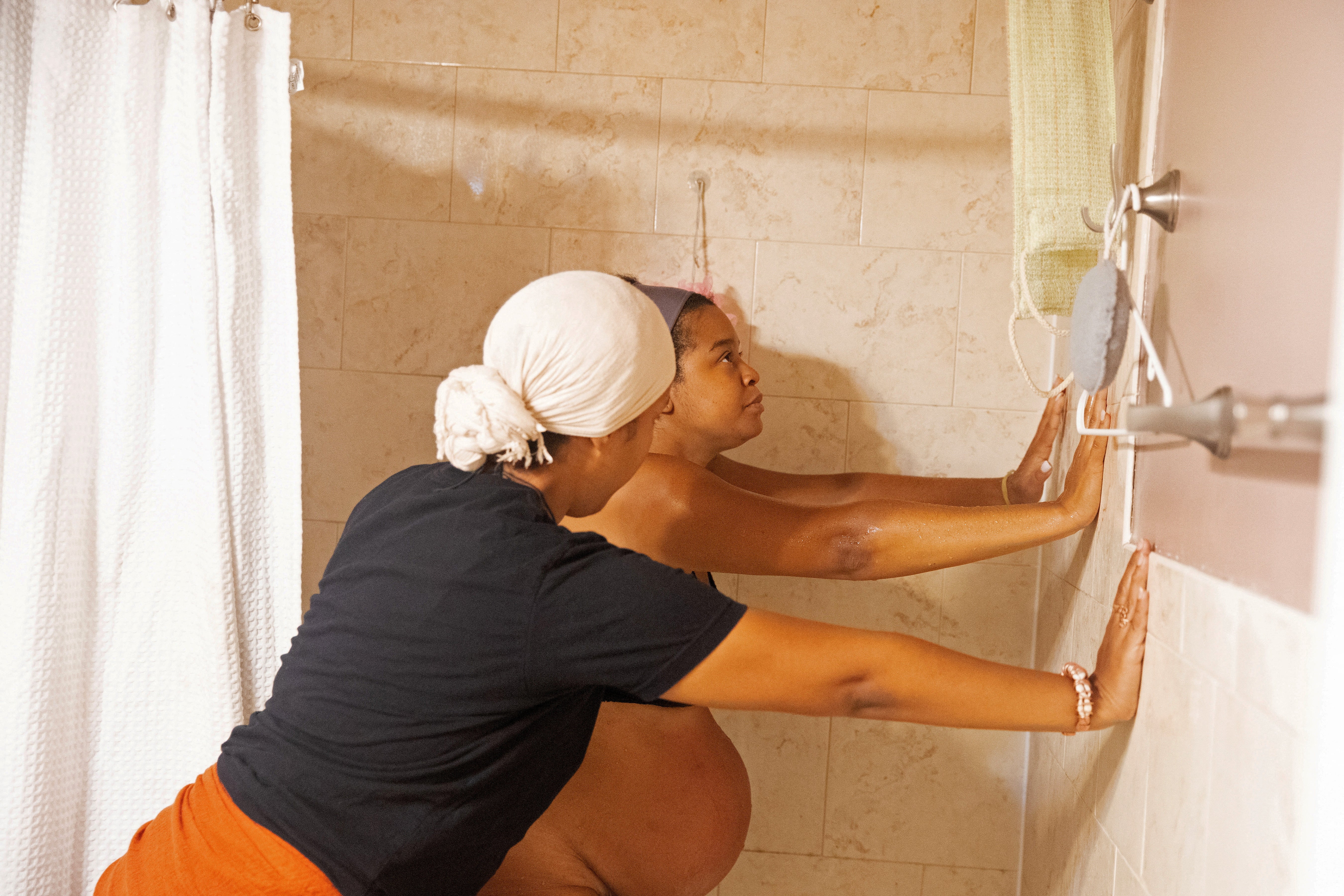
“I wanted to go through this birth without having any medical intervention,” says Clark.
After four caesarean sections with her previous pregnancies, Clark says she feared that her birth plan would not be supported by the medical staff. But after a long labour, Clark says she became anxious and decided to go to the hospital, where she gave birth to a healthy son.
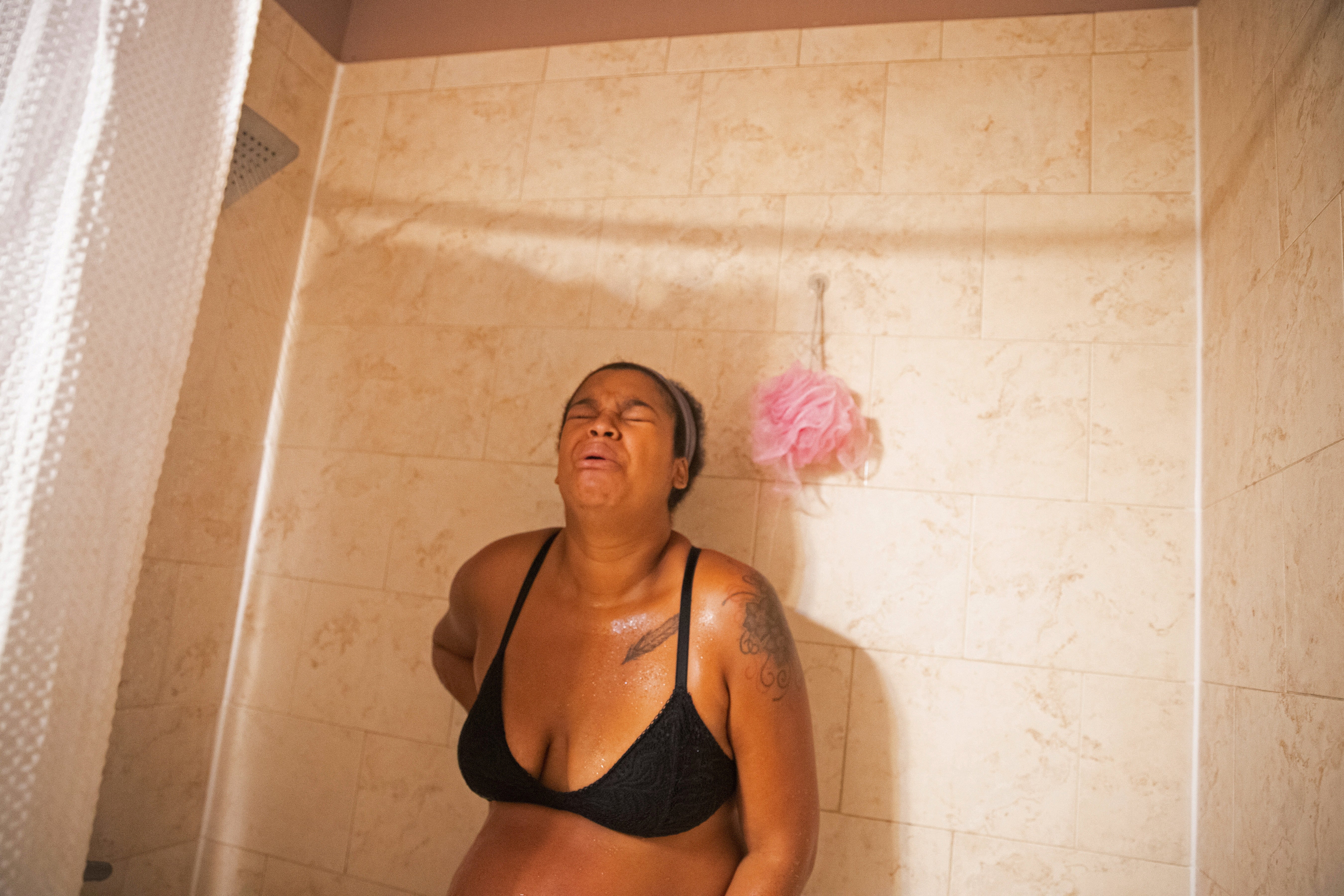
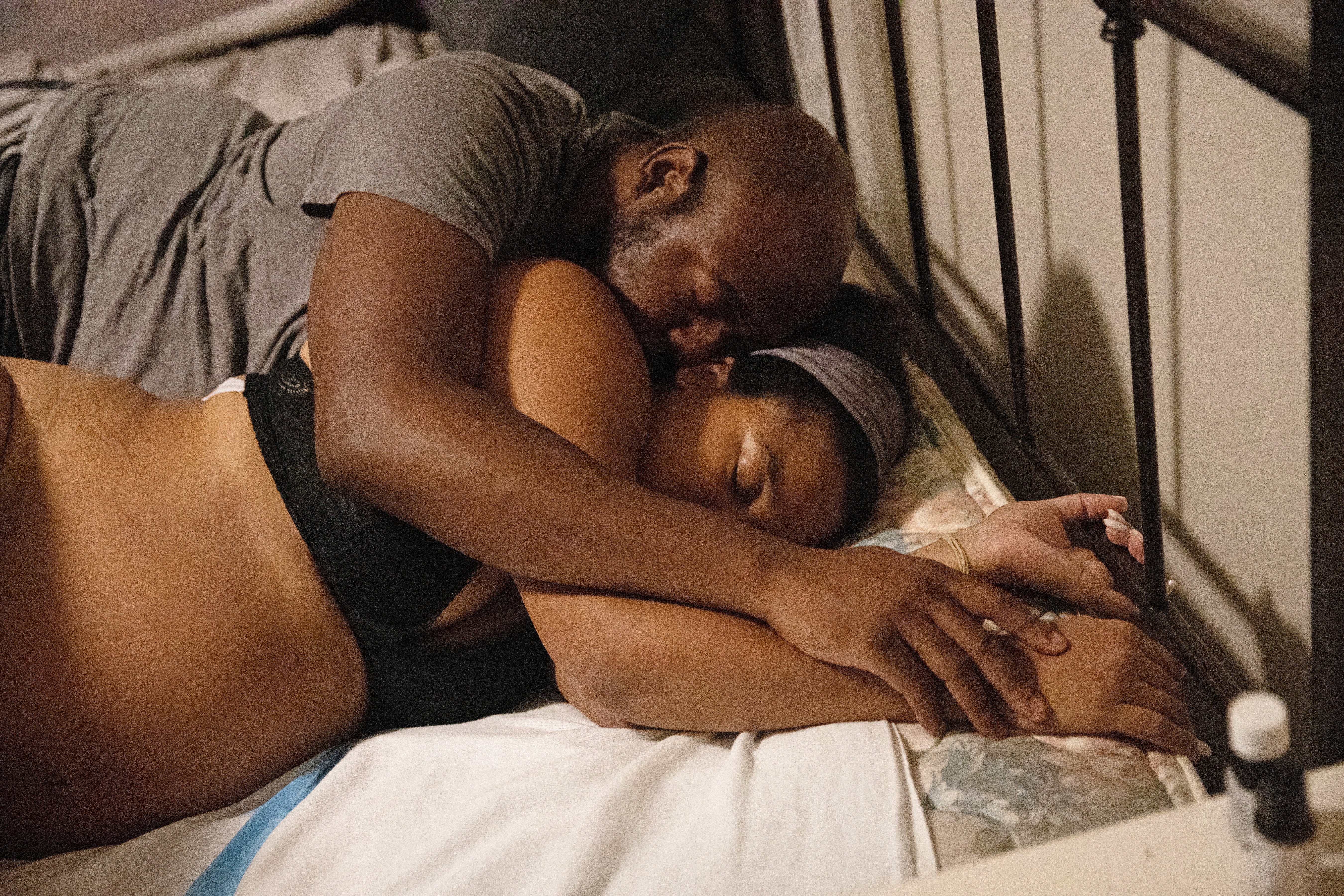
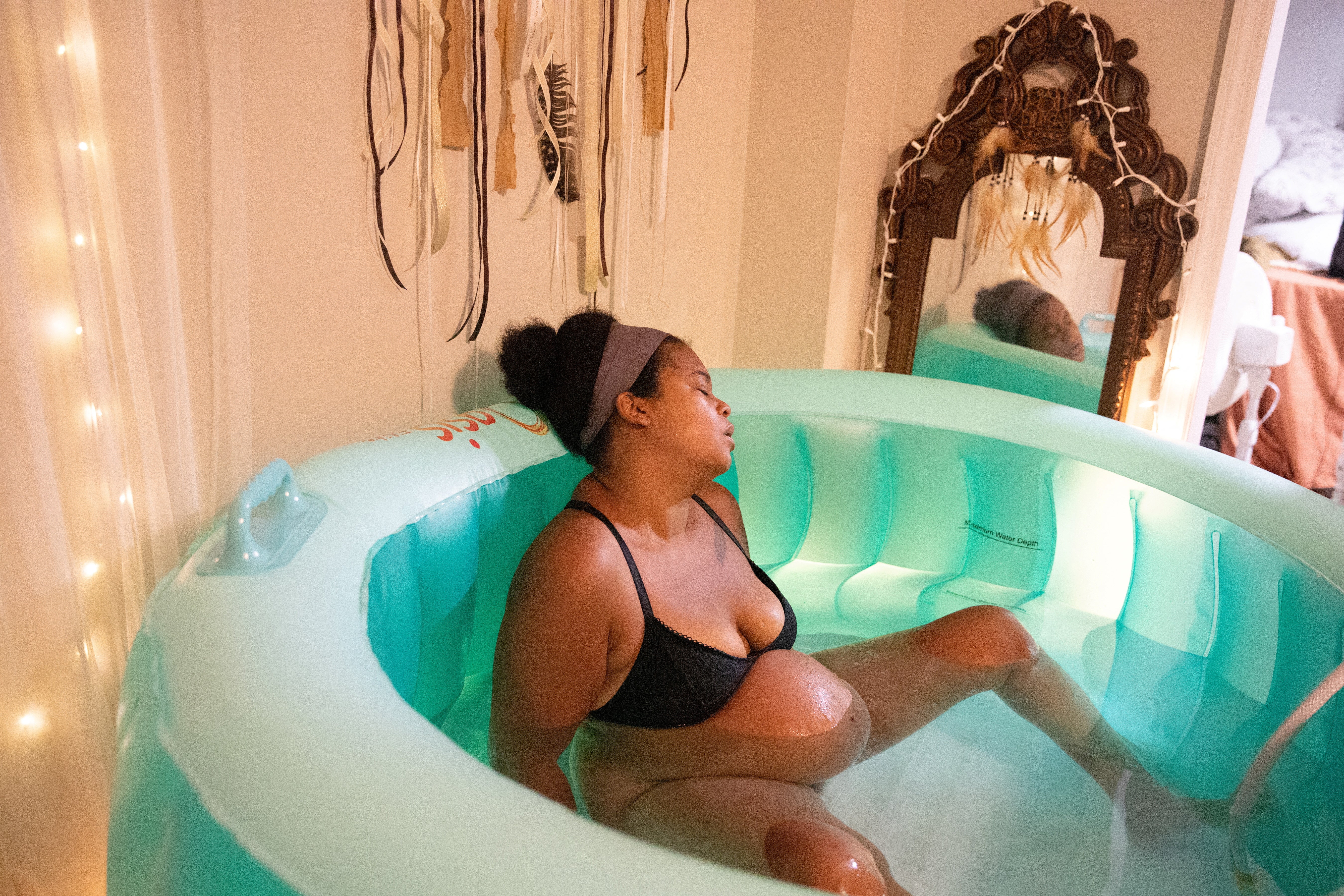
Clark is not alone in her distrust of medical intervention in the birthing process. Nine Black pregnant women and new mothers that Reuters spoke to for this story voiced similar comments. All of the women spoke of feeling unseen and unheard at times through their pregnancy and postpartum period.
Latest data from the Centres for Disease Control and Prevention (CDC) shows that Black women in the United States are three times more likely to die of pregnancy-related causes than white women. The CDC said this was a result of multiple factors, including variation in the quality of healthcare, underlying chronic conditions, structural racism, and implicit bias.
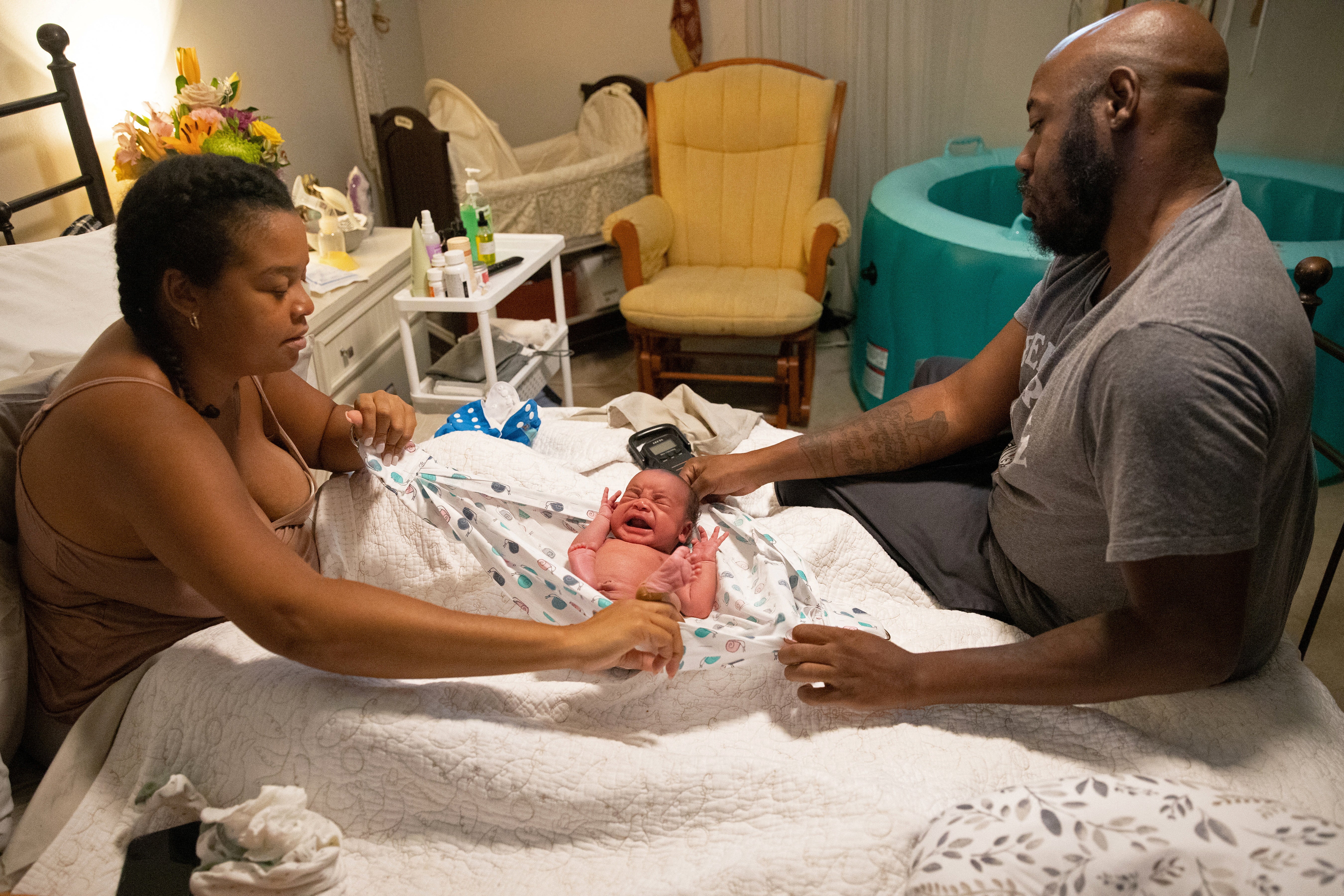
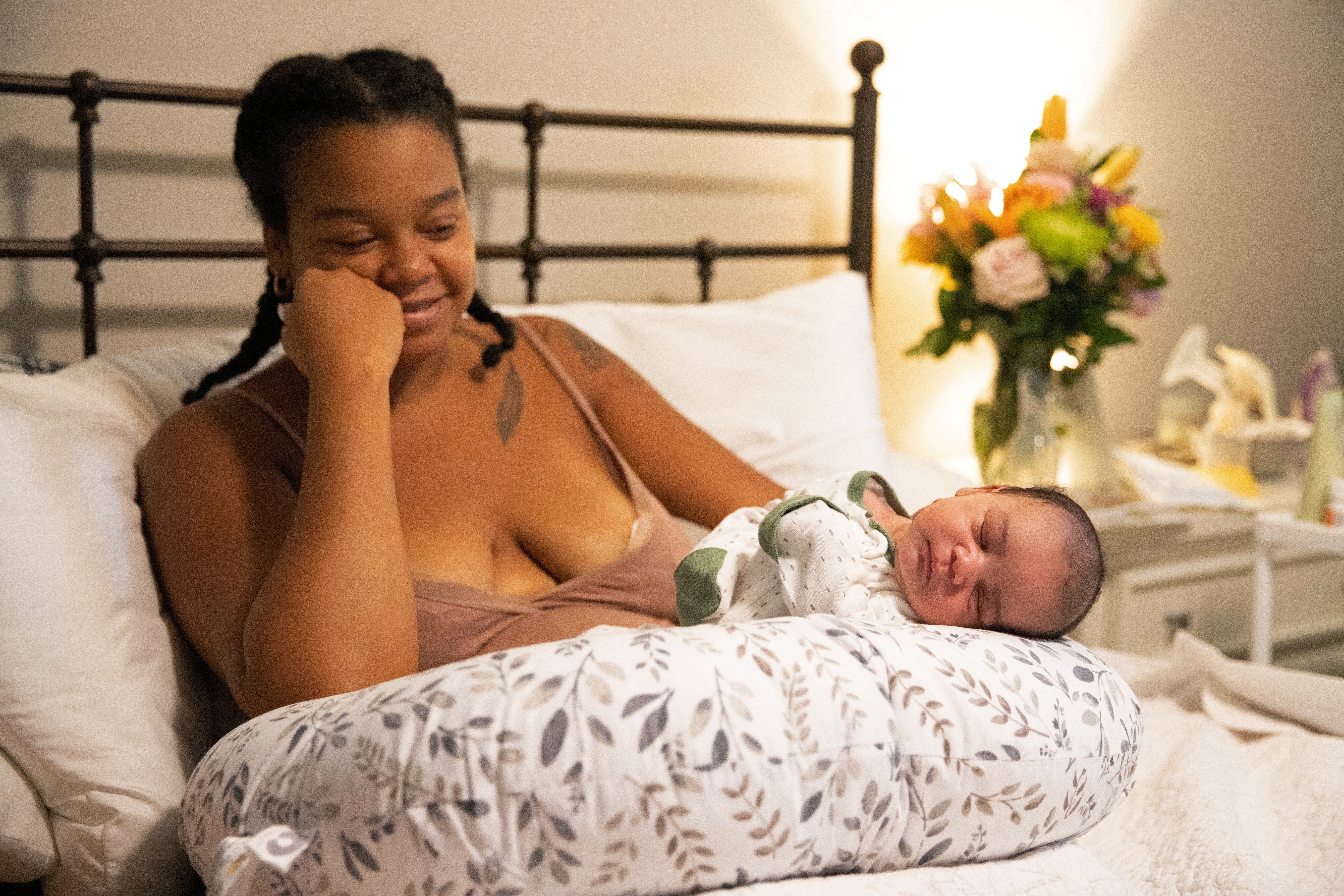
For Chelsea Ward, a nursing student from Fords, New Jersey, who recently gave birth to twins, the state of Black maternal health in the United States is “inadequate.”
“It’s challenging when you’re fighting and advocating for your maternal health rights, and having to educate your peers as well,” Ward says.
Obtaining knowledge and self-advocating is key to making informed decisions, Ward adds.
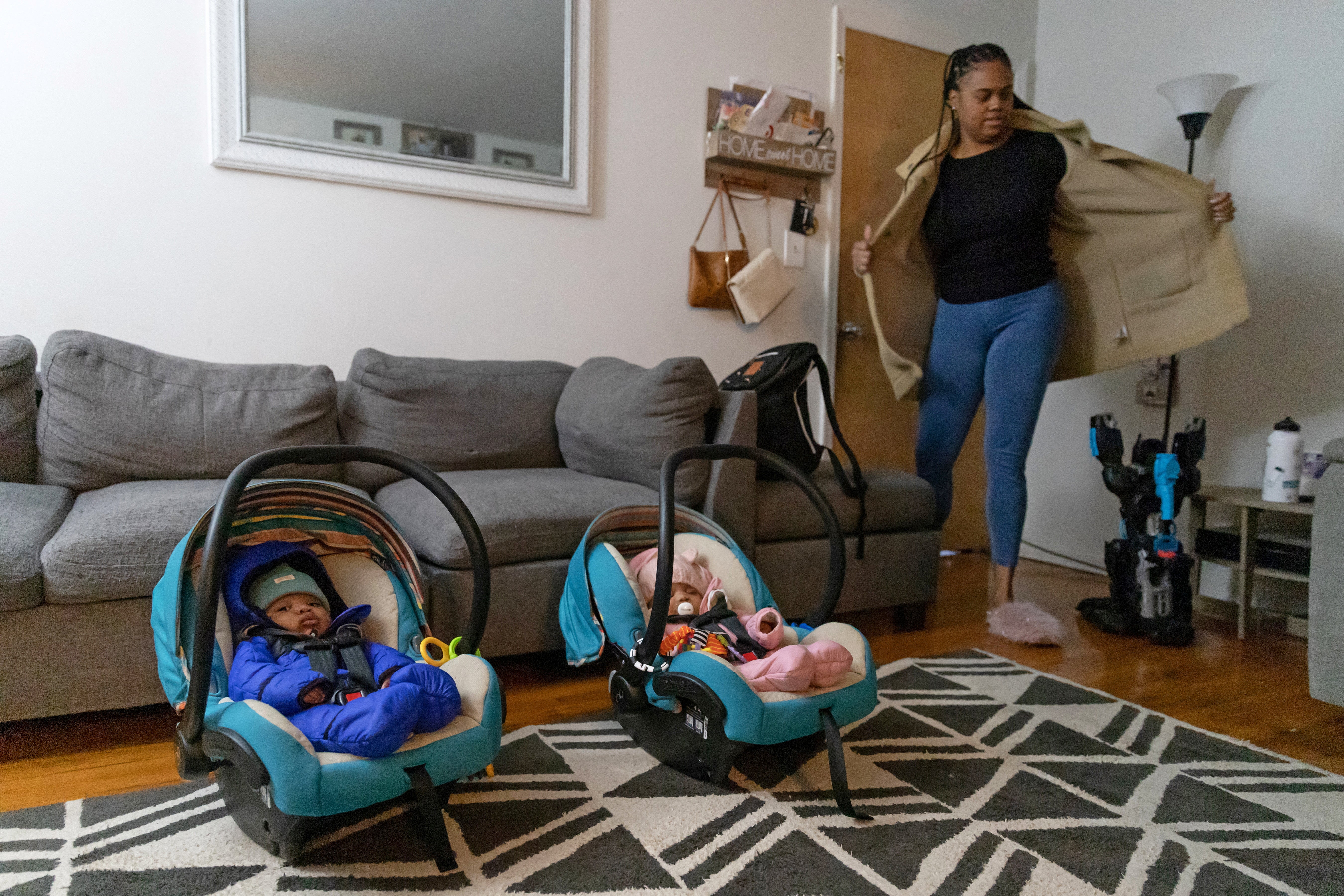
Despite their challenges, the women described their resilience as they navigate maternal healthcare and motherhood.
Soyal Smalls, from Poughkeepsie, New York, who was pregnant when Reuters photographed her in August 2022, believes increasing the number of Black healthcare providers would help Black mothers, along with having more hospitals with birthing units to support the mother and allow for more vaginal births.
Ashlee Muhammad agreed, saying her doctors had assumed she would have a caesarean and she had to advocate for herself to have a vaginal birth for her twins.
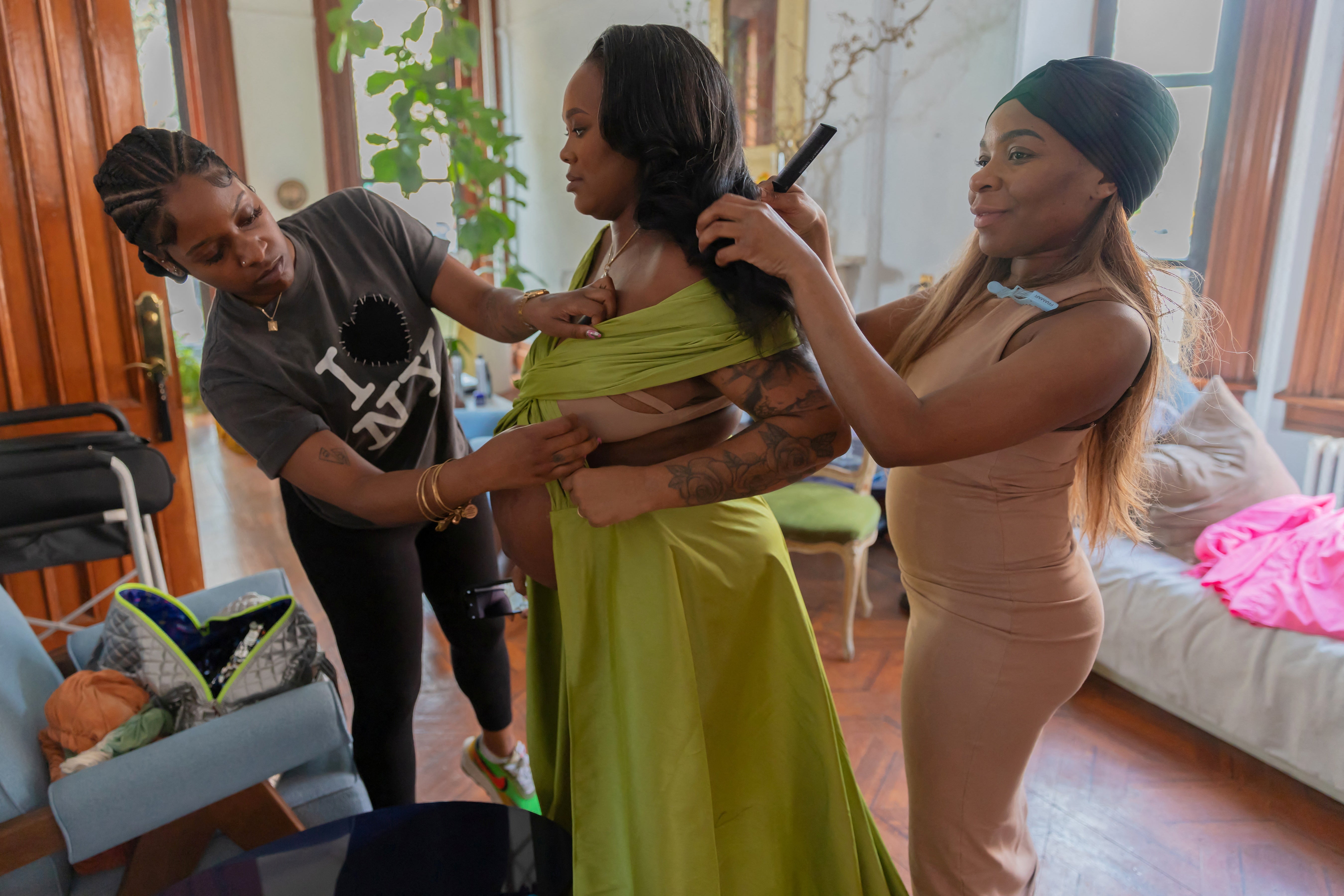
Many of the women also emphasised the importance of postpartum care.
“If we are not whole as mothers, I don’t know how anyone expects us to care for these children,” Clark says.
Ward says she thought more education for the Black community on innovations in birthing, postpartum care, and parenting would be beneficial. “I truly believe that if we know better, we would do better,” she says.
Shariah Bottex, a programme manager in Flushing, New York, pumped milk while her fiance fed their newborn son when Reuters photographed her in March. She says her biggest hope for her children is that they will feel comfortable in their skin and that they get to enjoy their childhood.
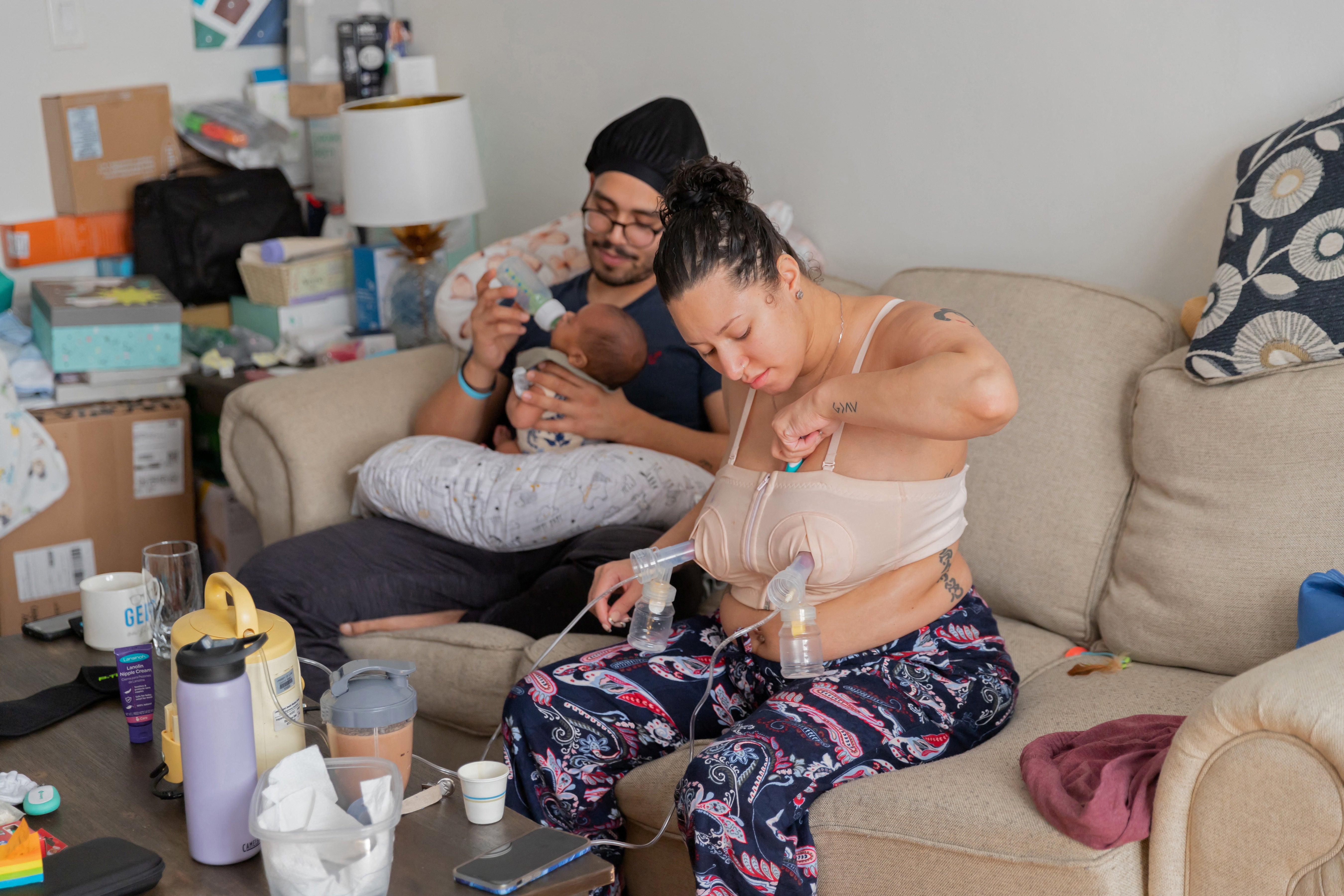
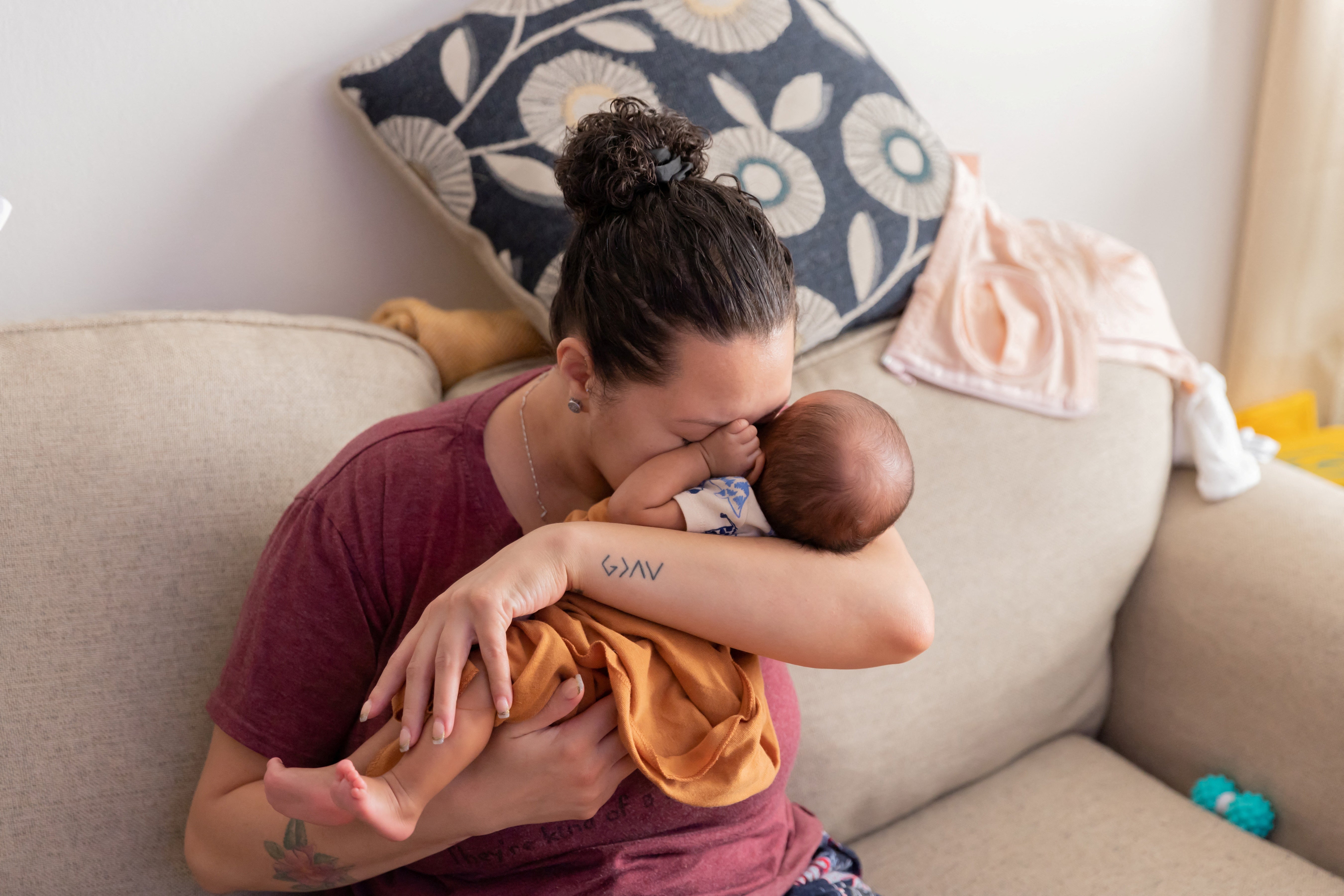
“My greatest joy as a mother is seeing my baby smile so big and knowing that I’m the cause of that smile and his happiness,” Bottex says.
Photography by Joy Malone
Reuters
Join our commenting forum
Join thought-provoking conversations, follow other Independent readers and see their replies
Comments
Bookmark popover
Removed from bookmarks